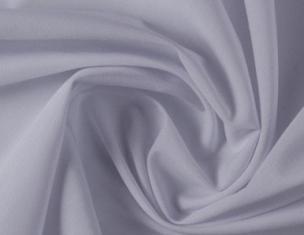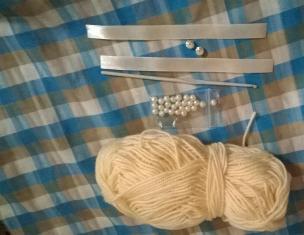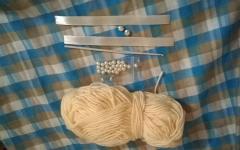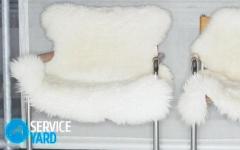As Thomas Edison once said: “To invent, you need a lot of imagination and a lot of junk.” It’s good when you have imagination, which helps turn various “heaps of garbage” into necessary goods and global business trends that no one had ever thought of before. Today it is becoming very popular.
But in modern world a pile of garbage is less important for the creation of valuable goods and services. More and more we need smart ideas and a few things that are found in everyday life. After all, sometimes in order to earn your billion, you don’t need to invest that much. So where is that kind of money made?

1. Michelle Ferrero (Ferrero Rocher). Europe. Net worth $10 billion.
The idea was to create real chocolate as part of everyone's breakfast. To do this, it was only necessary to sell chocolate butter for sandwiches and toast. As a result, the Ferrero family, headed by Michel, is now one of the largest chocolate producers in Europe. Their brands include the well-known Ferrero Rocher, Tic Tac and Kinder Eggs. The chocolate business was a success!
 3. Ralph Lauren. Net worth: $5 billion.
3. Ralph Lauren. Net worth: $5 billion.
Ralph came up with the idea of taking a very ordinary polo shirt. Then he put a small tag on it with a horse and rider drawn on it. Someone valued this masterpiece at $50. After that, the whole world buys slightly strange (and in my opinion tasteless) T-shirts, and their owner continues to earn his fortune.
 4. Jeff Bizos. Net worth: $4.4 billion.
4. Jeff Bizos. Net worth: $4.4 billion.
Jeff once proposed and began implementing the idea of selling books online, thereby saving buyers the precious time they spend going to bookstores. After a rocky start, Jeff Bizos is the founder of Amazon.com, the world's largest online store.

5. Ty Warner. Net worth: $4.5 billion
Warner's business idea was to produce beautiful teddy bears. The bears, of course, were not ordinary ones, but with different touching names! All the girls, and at the same time the boys, immediately rushed to buy different Tedi and Michi for themselves with tears in their eyes. The toys instantly became collector's items. Note that plush toys can be made even from old sweaters.
 6. Kaleo Juvidiha, Dietrich Mateschitz. Thailand, Austria. Net worth: $3.1 and $3 billion
6. Kaleo Juvidiha, Dietrich Mateschitz. Thailand, Austria. Net worth: $3.1 and $3 billion
Apparently, the creators were big fans of night parties, where you wanted to be super energetic and super active :) So they decided to create an energy drink with a high content of caffeine, taurine and sugar. The drink turned out to be excellent, with a high content of vitamin B and turned out to be ideal for athletes and lovers of night discos. This is how Red Bull was born. Now the creators make an average of $3.4 billion a year from sales of this “beast.”
7. Mario Moretti Polygatto. Italy. Net worth $3 billion
Mario decided to produce shoes with small holes in the soles. The holes are able to keep moisture out thanks to a special membrane, but thanks to them, your feet don’t sweat so much. became his creation.

8. James Dyson. United Kingdom. Net worth: $1.6 billion.
James' creation was a vacuum cleaner that sucks up dust at incredible speeds - from 320 km/h to supersonic speed (the vacuum cleaner is clearly not quiet). Powerful suction power allows the vacuum cleaner to suck in large pieces of dirt and all kinds of debris. The fast-moving air picks up small particles and carries them into the cones, where the dirty air accelerates to 1,400 km/h, spinning at more than 300,000 revolutions per minute. The result is a centrifugal force of up to 200,000 g! The efficiency is such that cigarette smoke particles are separated from the air at the narrow initial tip of the cone and then sent to the container.

9. Hans and Paul Reigel, Germany. Wealth: $1.5 billion each
Their sweet business idea was to sell sweet chewing candies in all kinds of shapes. Now the annual turnover of their confectionery factory averages $2 billion.

10. Howard Schultz, $1.1 billion
Howard once decided to install coffee shops on every corner in America. Now Schultz is the owner of the Starbucks coffee chain, now he is the “Coffee King”. Today it has 12 thousand coffee shops. They serve coffee to 40 million Americans every week.
In today's high-tech world, we need less trash to make a valuable invention and more good idea. This is clearly demonstrated by the list of 10 inventions that earned billions, presented by Forbes.
Five out of ten inventions were made in America. Others came from the most different corners Lands from Thailand to Germany.
1. Michelle Ferrero and family. Europe.$10 billion
Business idea: make chocolate part of breakfast by selling chocolate butter for sandwiches and toast.
The Ferrero family, led by Michel, is one of Europe's largest chocolate producers. Their brands include Ferrero Rocher, Nutella, Tic Tac and Kinder Eggs. Now the family is expanding its activities towards Asia, especially China. Michel Ferrero lives in Monte Carlo, his sons live in Belgium.
2. Brad Hughes. $5.3 billion
Business idea: install automatic storage lockers along highways for everyone.

Brad's company Public Storage is the largest storage company in America in terms of storage services. It has 2 thousand branches. Brad was working as a senior executive at Property Research, a real estate syndicate, when he decided to start own business with storage rooms. Hughes is one of America's largest philanthropists and is fighting childhood leukemia. The billionaire donated over $200 million to the Parker Hughes Cancer Treatment Center in St. Paul. The center was named after his eldest son.
3. Ralph Lauren. $5 billion
Business idea: take a regular polo shirt. Stick a horse tag on it. Estimated at 50 bucks. And look at how wildly it sells.

Born in the Bronx, the son of Russian emigrants, Ralph Lauren began his working career in a store, working as a clerk at Brooks Brothers. He left business school in 1967 to begin designing ties for Beau Brummel. That same year, he borrowed $50,000 to launch his legendary Polo. In 1994, he sold a 28% stake in his company to Goldman Sachs for $138 million. Lauren owns a ranch in Colorado and an estate in Jamaica.
4. Jeff Bizos. $4.4 billion
Business idea: sell books online, saving buyers the time they spend going to bookstores.

The founder of Amazon.com, the world's largest online retailer, Bizos grew up in Texas and Florida. He became a computer wizard in Princetown and worked on Wall Street immediately after graduating from university. But at the age of 30, Jeff changed his life dramatically, deciding to start selling books online. His first office was located in a garage in Seattle. In 1997, Jeff became a billionaire. Mr. Bizos' lifelong passion is space flight.
5. Ty Warner. $4.5 billion
Business idea: release cute teddy bears with different touching names in very limited quantities so that these toys immediately become collectibles.

Warner is the press-shy owner of the Binny Bear brand. The son of a salesman, he dropped out of college to start selling plush toys. Binny bears were born in 1986 and immediately took the lead in their segment for many years. Warner invested the profits he made in real estate and even built the most expensive hotel in New York, the Four Seasons. Want to spend the night there? Prepare $30 thousand!
6. Kaleo Juvidiha, Dietrich Mateschitz. Thailand, Austria. $3.1 billion, $3 billion (respectively)
Business idea: sell a sugar-caffeine-based energy drink rich in vitamin B for athletes and late-night partygoers.

Juvidiha and Mateschitz created Red Bull, an energy drink for young people interested in sports and an active lifestyle. Annual sales of this drink have already reached $3.4 billion. The co-owners of the brand (each owning 49%) acquired the Formula 1 racing team and two football teams: Red Bull Salzburg and New York Red Bulls. Yuvidiha also owns a chain of Thai private clinics and TC Pharmaceuticals ($170 million), which produces energy drinks in Thailand. Mateschitz is developing his own business projects related to aviation.
7. Mario Moretti Polygatto. Italy. $3 billion
Business idea: to produce shoes with small holes in the soles (protected from moisture by a special membrane), which relieve people of the smell of sweat in their feet and make the insoles less stinking.

Mario - founder Geox company shoes. The idea of “breathable” shoes came to the founder of the company in 1994 during a trip to the mountains of Nevada. The heat was unbearable, and to give his feet a chance to “breathe,” Polegatto punched holes in the soles of his sneakers. He tried to sell the idea to Nike, but the concern was not interested in the project. Now Mario's own company sells 16 million pairs of shoes a year. Even the Pope is among his clients. Polygatto is enjoying his success: he has bought two Lamborghinis, a Ferrari 360 Modena Spider, five Arabian horses and six antique Moto Guzzi motorcycles. IN free time Mario makes... glasses.
8. James Dyson. United Kingdom. $1.6 billion
Business idea: a vacuum cleaner that sucks up dust at incredible speeds - from 320 km/h to supersonic speed. Supersonic technology packs dust tightly and prevents it from being thrown out..

I studied as a child English language and played the bassoon, then went to art school to study design and engineering. He prepared 5,127 prototypes of his current vacuum cleaner, which he presented in England in 1993. This year, the Dyson DC12 vacuum cleaner became the most sold vacuum cleaner in Japan, ahead of local brands Sharp and Sanyo.
9. Hans and Paul Reigel, Germany. $1.5 billion (each)
Business idea: sell sweet chewing candies of various shapes.

After World War II, brothers Hans and Paul rebuilt their family's confectionery factory. Now the annual turnover of their brainchild is $2 billion. Most of the varieties of candies were invented by Hans - he has more than 200 of them. Ideas for new forms usually come to him after reading comics or watching children's films.
10. Howard Schultz$1.1 billion
Business idea: put a coffee shop on every corner in America.
 Starbucks coffee and bun - which brought in billions in profit
Starbucks coffee and bun - which brought in billions in profit Owner of the Starbucks coffee chain, coffee king. Schultz grew up in Brooklyn and attended and played football at Northern Michigan University. He moved to New York and began selling mugs and pots from a Swedish cookware manufacturer. While traveling in Italy, Schultz was captivated by the idea of opening espresso bars. His bosses said no, and he took the risk of starting his own business in 1985. In 1992, Schultz began publicly trading his company's shares. Today, Starbucks has 12,000 coffee shops that serve 40 million Americans every week. Every second coffee chain in your city is trying to copy Starbucks, and every first one is Starbucks.
Based on material from dp.ru
Michelle Ferrero and family, $10 billion.
The idea: to make chocolate butter for breakfast sandwiches and toast, to include chocolate in the daily menu.

Brad Hughes, $5.3 billion.
The idea: for the convenience of everyone, install automatic storage lockers along highways.

Ralph Lauren, $5 billion.
The idea: stick a bright label with a picture of a horse on a regular polo shirt. Set the price at $50 and then calculate your profit.

Jeff Bizos, $4.4 billion.
The idea: to free book buyers from long trips to bookstores in search of the literature they need, to sell books via the Internet. As a result, the creation of Amazon.com.

Ty Warner, $4.5 billion.
The idea: to release limited editions of cute teddy bears with warm, touching names. Once sold, these toys immediately become collector's items.

Kaleo Yuvidiha, Thailand. and Dietrich Mateschitz, Austria. $3.1 and $3 billion, respectively.
The idea: to sell athletes and late-night partygoers a sugar-caffeine-based energy drink that's rich in vitamin B.

Mario Moretti Polygatto, Italy, $3 billion.
The idea: to produce shoes that are intended for people suffering from the smell of sweat on their feet. Special insoles with small holes in the soles help avoid unpleasant odors.

James Dyson, UK, $1.6 billion.
The idea: to create a powerful vacuum cleaner that can suck up dust at a speed of 320 km/h and above. This speed allows the dust to be packed tightly and makes it impossible to throw it out.
As practice shows, not only highly educated and brilliant people become millionaires. Successful companies are also founded by ordinary people who have the ability to be creative and think outside the box. Many successful startups began with ideas that few initially inspired confidence in. However, now their authors can tell you first-hand how to earn a billion dollars.

1. By freeing book lovers from the need to purchase books in regular bookstores, D. Bizos earned more than 4 billion dollars. He was the first to sell books online. He knows exactly how to make a billion, and not alone. The list of the richest companies in the world includes Amazon, which was founded by the now famous billionaire Bizos.

2. A company that produces unique, limited-edition toy bears has enriched its founder by $4.5 billion. Each toy has its own name, the second one is not exactly the same. That’s why the bears immediately go to private collections. Here's how to make a billion dollars, simple and original.

3. By increasing the dust absorption speed to 350 kilometers per hour, D. Dyson became the author of a vacuum cleaner from which dust does not fly out. At the same time, I also learned how to make a billion from scratch using my bold ideas.

4. Multi-colored chewing gum of various shapes made the authors of this idea richer by as much as 1,500 million. This is how you can earn a lot and quickly by doing something fun.

5. G. Schultz just loved coffee, that’s why he wanted to drink it always and everywhere. Now Starbucks has more than twelve thousand coffee shops, and the author of the idea himself has become richer by more than a billion dollars.

6. Kindness and responsiveness also made O. Winfrey rich and famous

7. Ukrainian emigrant Y. Kum could have imagined that years later he would become a billionaire? Facebook acquired his Whats App messenger for a whopping $19 billion. Facebook itself represents companies that have made billions thanks to bold ideas.

8. Do something that brings you pleasure. Thus, writing for housewife D. Rowling brought billions.

9. Automated lockers on the roads enriched B. Hughes by almost 2.5 billion dollars.

10. If you have a penchant for sewing and knitting, like the founders of the Zara and Benetton brands, then perhaps your clothing line will soon gain worldwide popularity.

Be inventive, invent, and even if your business is not included in the ranking of the richest companies in the world, and does not take first place in the top of the richest companies in the world, you can definitely try to earn your billion. Are you ready to try?)))
The main thing in any business, including the financial market, is a good idea. Its implementation could bring billions. Moreover, even though an idea may not look good on the surface, but with consistent implementation it can change the way of life all over the world. In general, I am sharing with you a ranking of the most profitable business ideas in the world. Trust your imagination, don’t be afraid and be consistent - happiness will not escape you!
He became rich thanks to his imagination, which helped turn “heaps of garbage” into products and entire lines of business that did not previously exist. In today's high-tech world, we need less junk and more a good idea to make a valuable invention. This is clearly demonstrated by the list of 10 inventions that earned billions.
Five out of ten inventions were made in America. Others came from all over the world, from Thailand to Germany.
1. Michelle Ferrero and family. Europe. 10 billion dollars
Idea: Make chocolate part of breakfast by selling chocolate butter for sandwiches and toast.
The Ferrero family, led by Michel, is one of Europe's largest chocolate producers. Their brands include Ferrero Rocher, Nutella, Tic Tac and Kinder Eggs. Now the family is expanding its activities towards Asia, especially China. Michel Ferrero lives in Monte Carlo, his sons live in Belgium.
2. Brad Hughes. $5.3 billion
Idea: install automatic storage lockers along highways for everyone.
Brad's company Public Storage is the largest storage company in America in terms of storage services. It has 2 thousand branches. Brad was working as a senior manager at Property Research, a real estate syndicate, when he decided to start his own luggage storage business. Hughes is one of America's biggest philanthropists and is fighting childhood leukemia. The billionaire donated over $200 million to the Parker Hughes Cancer Treatment Center in St. Paul. The center was named after his eldest son.
3. Ralph Lauren. 5 billion dollars
Idea: take a regular polo shirt. Stick a horse tag on it. Estimated at 50 bucks. And look at how wildly successful it is being sold.
Born in the Bronx, the son of Russian emigrants, Ralph Lauren began his working career in a store, working as a clerk at Brooks Brothers. He left business school in 1967 to begin designing ties for Beau Brummel. That same year, he borrowed $50,000 to launch his legendary Polo. In 1994, he sold a 28% stake in his company to Goldman Sachs for $138 million. Lauren owns a ranch in Colorado and an estate in Jamaica.
4. Jeff Bizos. $4.4 billion
The idea: sell books online, saving buyers the time they spend going to bookstores.
The founder of Amazon.com, the world's largest online retailer, Bizos grew up in Texas and Florida. He became a computer wizard in Princetown and worked on Wall Street immediately after graduating from university. But at the age of 30, Jeff changed his life dramatically, deciding to start selling books online. His first office was located in a garage in Seattle. In 1997, Jeff became a billionaire. Mr. Bizos' lifelong passion is space flight.
5. Ty Warner. $4.5 billion
The idea: to release cute teddy bears with different touching names in very limited quantities, so that these toys immediately become collectibles.
Warner is the press-shy owner of the Binny Bear brand. The son of a salesman, he dropped out of college to start selling plush toys. Binny bears were born in 1986 and immediately took the lead in their segment for many years. Warner invested the profits he made in real estate and even built the most expensive hotel in New York, the Four Seasons. Want to spend the night there? Prepare 30 thousand dollars!
6. Kaleo Juvidiha, Dietrich Mateschitz. Thailand, Austria. $3.1 billion, $3 billion respectively
The idea: Sell a sugar-caffeine-based energy drink rich in B vitamins to athletes and late-night partygoers.
Juvidiha and Mateschitz created Red Bull, an energy drink for young people interested in sports and an active lifestyle. Annual sales of this drink have already reached $3.4 billion. The co-owners of the brand (each owning 49%) acquired the Formula 1 racing team and two football teams: Red Bull Salzburg and New York Red Bulls. Yuvidiha also owns a chain of Thai private clinics and TC Pharmaceuticals ($170 million), which produces energy drinks in Thailand. Mateschitz is developing his own business projects related to aviation.
7. Mario Moretti Polygatto. Italy. $3 billion
The idea: to produce shoes with small holes in the soles (protected from moisture by a special membrane), which relieve people of the smell of sweat in their feet and make the insoles less stinking.
Mario is the founder of Geox shoes. The idea of “breathable” shoes came to the founder of the company in 1994 during a trip to the mountains of Nevada. The heat was unbearable, and to give his feet a chance to “breathe,” Polegatto punched holes in the soles of his sneakers. He tried to sell the idea to Nike, but the concern was not interested in the project. Now Mario's own company sells 16 million pairs of shoes a year. Even the Pope is among his clients. Polygatto is enjoying his success: he has bought two Lamborghinis, a Ferrari 360 Modena Spider, five Arabian horses and six antique Moto Guzzi motorcycles. In his free time, Mario makes... glasses.
8. James Dyson. United Kingdom. $1.6 billion
The idea: a vacuum cleaner that sucks up dust at incredible speeds - from 320 km/h to supersonic speed. Supersonic technology tightly packs dust and prevents it from being thrown out.
As a child, he studied English and played the bassoon, then went to art school to study design and engineering. He prepared 5,127 prototypes of his current vacuum cleaner, which he presented in England in 1993. This year, the Dyson DC12 vacuum cleaner became the most sold vacuum cleaner in Japan, ahead of local brands Sharp and Sanyo.
9. Hans and Paul Reigel, Germany. $1.5 billion (each)
Idea: Sell sweet gummies in all shapes and forms.
After World War II, brothers Hans and Paul rebuilt their family's confectionery factory. Now the annual turnover of their brainchild is $2 billion. Most of the varieties of candy were invented by Hans - he has more than 200 of them. Ideas for new forms usually come to him after reading comics or watching children's films.
10. Howard Schultz. $1.1 billion
The idea: put a coffee shop on every corner in America.
Owner of the Starbucks coffee chain, coffee king. Schultz grew up in Brooklyn and attended and played football at Northern Michigan University. He moved to New York and began selling mugs and pots from a Swedish cookware manufacturer. While traveling in Italy, Schultz was captivated by the idea of opening espresso bars. His bosses said no, and he took the risk of starting his own business in 1985. In 1992, Schultz began publicly trading his company's shares. Today, Starbucks has 12,000 coffee shops that serve 40 million Americans every week.








